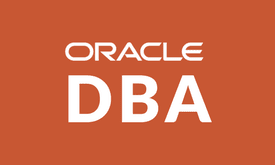- Footprinting
- Network scanning
- Enumeration
- Packet sniffing
- Social Engineering
- DoS/DDoS
- Session hijacking
- Webserver and web application attacks and countermeasures
- SQL injection attacks
- Wireless encryption
- Cloud computing threats
- Cryptography ciphers
- Penetration testing
Greens Technology provides Certified Ethical Hacking course in Chennai with practical session both online and classroom. Learn ethical hacking course from information security experts in chennai and across india. It is the best Ethical Hacking Institutes in Chennai. The training provided here is exceptional. The Ethical Hacking Course offered here is designed according to the updated trends in ethical hacking. The time and duration of the courses are flexible; we also provide weekend courses for the convenience of working professionals. The faculties who work with us are experts in ethical hacking. Ethical hacking Training in Chennai has become very popular today.
About Trainer
Sai is currently a recruitment reporting leader at GE, and an expert in data analysis, Excel, Access, Tableau, and talent acquisition. He has a BS and a master's degree from the University of Illinois at Urbana-Champaign.
Ethical Hacking training benefits
- My batch sizes are generally very small size 5-7 members OR 1 to 1 also, so students receive direct, hands-on training from us.
- 100% practical training only. It is not a slide show training program / theory class program. At the end of this class, definitely you will refer your colleagues / friends / relatives for my training.
- Conducting regularly online- training for US peoples in all time zones (PST,CST,EST,HST,MST)
- Installation of Softwares in your desktop / laptop will be done.
- Will be provided self evaluation testing software, exam simulator, dumps & books with this training.
- Continuous support is provided for any of your on-site problems. assistance will be provided and you will be recommended to some of IT development firms.
Want a free career Advice or any career related queries? Reach him by
+91 8939915572
Course Curriculum
Curriculum
WHAT IS Ethical Hacking?
Ethical hacking and ethical hacker are terms used to describe hacking performed by a company or individual to help identify potential threats on a computer or network. An ethical hacker attempts to bypass system security and search for any weak points that could be exploited by malicious hackers. This information is then used by the organization to improve the system security, in an effort to minimize or eliminate any potential attacks.
Career in Ethical Hacking
One of the most in-demand positions in this field is that of an ethical hacker—an IT professional who purposefully penetrates networks and systems to find and fix potential vulnerabilities. If you’re looking to put on your “white hat” and infiltrate systems for good, this position can be a great career opportunity. Depending on your experience and skills, you can earn over $100,000 per year.
To help job seekers learn what’s involved in becoming an ethical hacker and the responsibilities of the position, we spoke with IT security professionals, instructors and certified hackers themselves. Here, we highlight the skills and certifications needed to rise to the top of the talent pool.
Become an Ethical Hacker
Ethical hacking is the ability to identify vulnerabilities in an organization's network or infrastructure, and then address the issues to prevent incidents or attacks. Learn how to perform penetration testing and gain the knowledge and skills you need for a career in information security. Learn about common and emerging threats to systems.Practice using tools to test networks and identify risks.Implement countermeasures to prevent cybersecurity attacks.
What You'll Learn
Ethical Hacking and Countermeasures 9 Course Outline
- 1. Introduction to Ethical Hacking
- 2. Footprinting and Reconnaissance
- 3. Scanning Networks
- 4. Enumeration
- 5. System Hacking
- 6. Malware Threats
- 7. Sniffing
- 8. Social Engineering
- 9. Denial of Service
- 10. Session Hijacking
- 11. Hacking Webservers
- 12. Hacking Web Applications
- 13. SQL Injection
- 14. Hacking Wireless Networks
- 15. Hacking Mobile Platforms
- 16. Evading IDS, Firewalls, and Honeypots
- 17. Cloud Computing
- 18. Cryptography





